中央媒体走基层|《中国日报》Yunnan sprouting into nation's 'vegetable basket'



Yunnan sprouting into nation's 'vegetable basket'
Poverty alleviation model expanded to enrich one of China's most fertile provinces
Long known for its breathtaking landscapes and ethnic diversity, Southwest China's Yunnan province is emerging as a national leader in specialty agriculture, transforming its once-impoverished rural regions into engines of economic renewal.
From sweet apples in Zhaotong to traditional cured meats in Xuanwei and leafy vegetables in Luliang, the highlands are cultivating not only crops, but also opportunities for the 88 counties in the province that have been lifted out of poverty.

Farmers pick apples at a production base of Zhaotong Chaoyue Agriculture in Zhao tong, Yunnan province. XU JING/FOR CHINA DAILY
Fruitful harvest
Perched on the Yunnan-Guizhou Plateau and located in the heartland of the Wumeng Mountains in the northeast of the province, Zhaotong was once a city with the largest impoverished population in China.
Now, it is Southwest China's largest producer of apples thanks to its low latitude, high elevation, generous sunshine and dramatic daily temperature swings. These ideal growing conditions have made Zhaotong's apples sweet, crisp and nationally recognized.
With nearly 66,700 hectares under cultivation, Zhaotong harvested 1.3 million metric tons of apples last year, generating a revenue of 15 billion yuan ($2.07 billion). The apple industry has directly benefited 138,000 households, touching the lives of over half a million residents, according to local officials.

Two farmers divide apples of various sizes into different categories at an orchard in Zhaotong in September. CHEN XINBO/XINHUA
In April of last year, apples from Zhaotong made headlines when they were included in the fresh food supply aboard the Shenzhou XVIII spacecraft.
A major individual orchard in Zhaotong's Zhaoyang district covers 6,670 hectares with 118 apple varieties, one of the largest of its kind. Yang Longjiang, director of the district's industry development center, said advanced agricultural techniques learned from New Zealand and elsewhere are yielding world-class results.
"The orchard applies dwarf root-stocks that yield fruit faster and uses an integrated drip irrigation system that can precisely deliver water and fertilizer, conserving precious resources," Yang said.
"Combined with monthly wages from working at the base, we can earn 80,000 yuan a year and live a better life," said Ding Kaiwen, a former tobacco farmer who works in the orchards with his wife. Their family also receives an annual land lease payment of 14,400 yuan.
The district's agricultural officials report that formerly impoverished households have seen average income increases of 4,800 yuan thanks to the apple boom.
Branding has also played a crucial role in the success of the local apple industry. The Zhaoyang Red, one of the region's signature apple brands, has earned 93 green food and multiple organic certifications, paving the way for exports to the United Arab Emirates, Thailand and beyond.
Premium supermarket chains such as Sam's Club and Freshippo stock Zhaotong apples, selling at 8 to 14 yuan per kilogram. Orchard tourism and fruit-picking festivals have also emerged to breathe new life into local economies.
High-tech ham
Xuanwei ham, a dry-cured specialty with a legacy dating back centuries, is another Yunnan food specialty that has found its place on the dinner tables of Chinese consumers. It sits alongside Italy's Parma ham and Spain's Iberico ham. In 2023, the pig farming and ham industry in Xuanwei generated over 18.5 billion yuan, producing nearly 70,000 tons of ham and lifting thousands of households out of poverty.

Cured meats are air-dried at a production base of local manufacturer Lap-Jon Ham in Xuanwei, Yunnan province. [Photo provided to CHINA DAILY]
Zhou Jianmei, quality control manager at leading brand Lap-Jon Ham, recalls the moment they realized tradition alone wouldn't be enough. "We knew the quality of our pigs was top-tier, but our production chain lagged behind Europe. So we went there to learn."
Inspired by European models, Lap-Jon Ham invested 360 million yuan into advanced facilities, importing Italian fermentation systems and automating the aging process to allow year-round production.
A modern factory capable of producing 3,200 tons of premium ham annually has been built, alongside salami and ham-filled pastries. Last year, the company reported an output value of 478 million yuan and created over 600 local jobs.
"We learned from the refined, standardized production processes abroad and adapted them to the unique characteristics of Xuanwei ham," Zhou said.
According to government data, over two-thirds of Xuanwei's 330,000 rural households are involved in pig farming. Their average incomes rose by 28,100 yuan in 2023, while 36,000 families previously living in poverty saw an average annual increase of 4,300 yuan.
Six "ham manors" in the city have further boosted income for 2,800 households and created more than 500 jobs, with average monthly wages hitting 4,500 yuan.
Zhou said the primary challenge now is popularization. While beloved in parts of southern China where cured meat has long been a traditional delicacy, Xuanwei ham remains unfamiliar in the country's north.
"When you mention 'ham' in the north, many people still think of processed sausage," she said, adding that better awareness among Chinese consumers in the future is expected to expand the market.
Leafy ambitions
The agricultural reinvention of Yunnan extends to the vast, fertile plains of Luliang county in Qujing, the largest flatland on the Yunnan-Guizhou Plateau.

A farmer harvests Chinese broccoli at a plantation in Luliang, Yunnan province, in January last year. WANG YONG/FOR CHINA DAILY
The unique geography and climate of the county in the east of the province have made it an agricultural powerhouse, and the thriving vegetable industry is feeding cities across China and reaching tables as far away as Dubai.
With 6,000 hectares of cultivated land yielding 2.45 million tons of vegetables in 2023, Luliang generated 7 billion yuan, nearly half the county's total agricultural output.
The region has an average annual temperature of 15.2 C, a frost-free period of 335 days, fertile soil and abundant water resources, making year-round production of vegetables possible.
"Thanks to these favorable natural conditions, we can grow a wide variety of fresh, eco-friendly vegetables all year round," said Zhang Raofang, deputy director of Luliang's agriculture and rural affairs bureau.
Italian lettuce, romaine, napa cabbage and Shanghai bok choy are among the stars of the leafy industry. About 93 percent of its harvest is shipped to markets from Beijing to Dubai, Zhang said.
Advanced infrastructure has contributed to the success of the industry. Home to Southwest China's largest cold-chain logistics park, the county dispatches 10,000 tons of vegetables daily, serving the Guangdong-Hong Kong-Macao Greater Bay Area and elsewhere. In 2023, its import-export vegetable trade reached $5.16 million, a 237 percent year-on-year increase.
"The lettuce grown here is thick, crisp and of excellent quality," said Zhang Zixiong, chairman of Yunnan Yuanheng Agricultural Development Corp. His company manages 180 hectares and works with local farmers on another 1,333 hectares.

Farmers reap seasonal vegetables in a field in Luliang in May. WANG YONG/XINHUA
The company recently expanded its export markets to Southeast Asia and the Middle East and has hired young college graduates majoring in foreign languages to help manage its business overseas.
Huang Hongdong, a major vegetable producer in the county, cultivates 6.67 hectares of Chinese arrowhead (Sagittaria sagittifolia), an aquatic tuber known as cigu in Chinese. "Half of our products now go to Malaysia. They really value the taste and quality," Huang said.
The vegetable industry employs 210,000 people in Luliang, from planting and processing to packaging and transport, boosting average household incomes by over 28,000 yuan a year, according to Zhang from the agriculture bureau.
As demand for safe, high-quality vegetables grows, Luliang is playing a greater role in both China's national "vegetable basket" and the global food supply chain, he added.
This year marks the final stage of a five-year transition period aimed at consolidating the gains made in poverty alleviation and ensuring a seamless shift toward rural vitalization.
By cultivating high-quality agricultural specialties and expanding access to broader markets, residents in some of Yunnan's formerly poor regions have not only emerged from poverty but are embracing sustainable opportunities for long-term improvement in their lives.
来源:中国日报


(责任编辑:百科)
-
红牛(广州)控股集团提神宝为何能结束功能饮料的“战国时代”?
 发布者:蒙蒙 浏览量:14712发布时间:2022/2/25 16:21:59 年轻人热爱的,打工人离不开的功能饮料到底是什么?《饮料通则》中“特殊用途饮料”其实更加符合社会
...[详细]
发布者:蒙蒙 浏览量:14712发布时间:2022/2/25 16:21:59 年轻人热爱的,打工人离不开的功能饮料到底是什么?《饮料通则》中“特殊用途饮料”其实更加符合社会
...[详细]
-
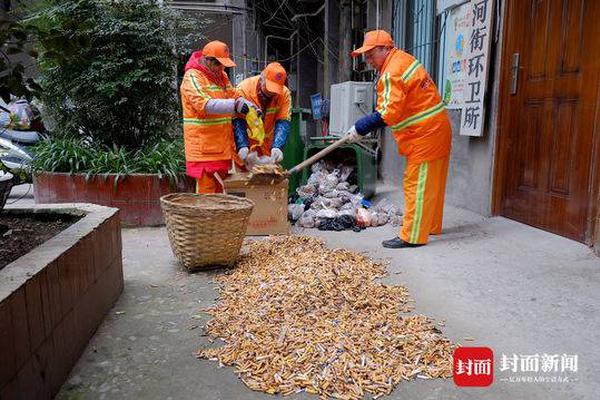 19日早报:杜兰特左小腿拉伤 韦德力挺费兹戴尔发布时间:2022-01-08 19:43 来源:豫都网 我要投稿[摘要]北京时间2017年4月19日,NBA季后赛继续进行。精彩的比赛之外,联盟还有不少
...[详细]
19日早报:杜兰特左小腿拉伤 韦德力挺费兹戴尔发布时间:2022-01-08 19:43 来源:豫都网 我要投稿[摘要]北京时间2017年4月19日,NBA季后赛继续进行。精彩的比赛之外,联盟还有不少
...[详细]
-
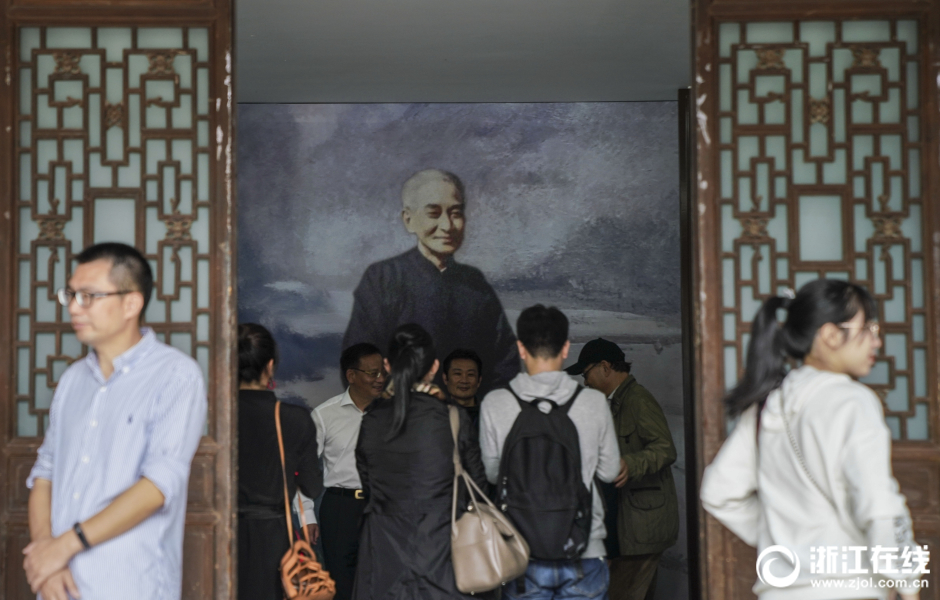 近日,Louis Vuitton重磅推出“爱之耀眼”香氛珍藏版,这一融合了艺术、情感与工艺的香氛之作,是男装创意总监Pharrell Williams与路易威登调香大师Jacques Cavallie
...[详细]
近日,Louis Vuitton重磅推出“爱之耀眼”香氛珍藏版,这一融合了艺术、情感与工艺的香氛之作,是男装创意总监Pharrell Williams与路易威登调香大师Jacques Cavallie
...[详细]
-
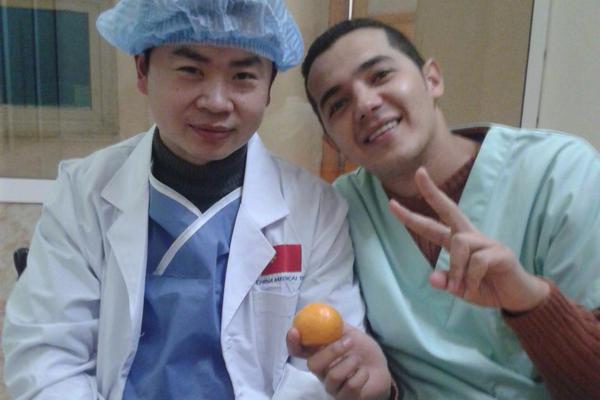 近日,日本运动品牌 ASICS 公布了 2025 年一季度财报。欧洲、中东和非洲EMEA)地区收入同比增长 18.7%,展现出品牌在欧洲市场蓬勃的发展态势与强劲的增长动力。从销售渠道来看,ASICS
...[详细]
近日,日本运动品牌 ASICS 公布了 2025 年一季度财报。欧洲、中东和非洲EMEA)地区收入同比增长 18.7%,展现出品牌在欧洲市场蓬勃的发展态势与强劲的增长动力。从销售渠道来看,ASICS
...[详细]
-
 玻璃拥有良好的透过、透光性能,化学稳定性较高,并且可以根据不同加工方法来获得较强的机械强度与保温隔热效果,甚至能够使玻璃自主变色,隔绝过强的光线,因此常用于各行各业,满足不同的需求。接下来请看
...[详细]
玻璃拥有良好的透过、透光性能,化学稳定性较高,并且可以根据不同加工方法来获得较强的机械强度与保温隔热效果,甚至能够使玻璃自主变色,隔绝过强的光线,因此常用于各行各业,满足不同的需求。接下来请看
...[详细]
-
喜报丨热烈祝贺伟业计量成为信阳市环境监测标准物质重点实验室的依托单位
 近日,根据《信阳市市级重点实验室建设与运行管理办法》和《关于组织申报2023年度信阳市重点实验室的通知》(信科〔2023〕40号)等相关要求,经过严格的审核和考察,信阳市发展和改革委员会公示了拟新建2
...[详细]
近日,根据《信阳市市级重点实验室建设与运行管理办法》和《关于组织申报2023年度信阳市重点实验室的通知》(信科〔2023〕40号)等相关要求,经过严格的审核和考察,信阳市发展和改革委员会公示了拟新建2
...[详细]
-
財經一週:台灣又登上經濟學人、中國喊「不跪不退」、美國首季GDP萎縮0.3%|天下雜誌
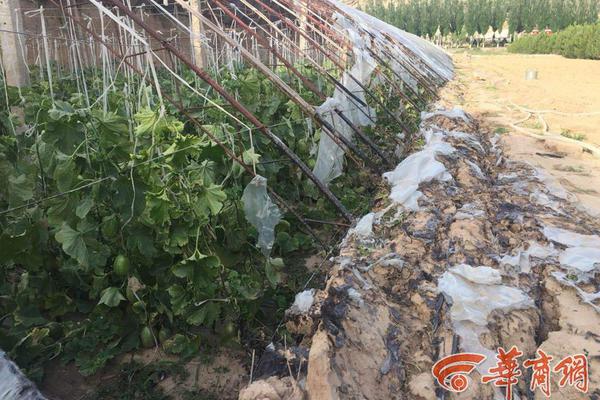 《經濟學人》最新一期封面出現了台灣國旗,凜冽點出三大新因素,已經讓美國威懾失色,台灣可能慢慢落入中國勢力範圍。而中國愈來愈明顯表態,根本不急著坐下來跟川普談判,習近平如此立場強硬,發生什麼事?美國第一
...[详细]
《經濟學人》最新一期封面出現了台灣國旗,凜冽點出三大新因素,已經讓美國威懾失色,台灣可能慢慢落入中國勢力範圍。而中國愈來愈明顯表態,根本不急著坐下來跟川普談判,習近平如此立場強硬,發生什麼事?美國第一
...[详细]
-
巴菲特:「人們最悲觀時,是最好的買點」 為何市場下跌是好消息?|天下雜誌
 價格低的時候,我會買進很多,而在價格高的時候少買一點,甚至是不買。當人們在商店血拚時,很可能會這樣購物,但說到買股票,投資行為卻剛好相反,為什麼呢?您的閱讀篇數已達上限立刻訂閱全閱讀,即可享全站不限篇
...[详细]
價格低的時候,我會買進很多,而在價格高的時候少買一點,甚至是不買。當人們在商店血拚時,很可能會這樣購物,但說到買股票,投資行為卻剛好相反,為什麼呢?您的閱讀篇數已達上限立刻訂閱全閱讀,即可享全站不限篇
...[详细]
-
 近年来随着现代科技水平迅速提高,古老而传统的玻璃行业焕发变新,各种具备独特功能的玻璃产品纷纷问世。这些玻璃不但能起到传统的透光效果,而且还能在一些特殊的场合发挥出不可替代的作用。想要了解隔音玻
...[详细]
近年来随着现代科技水平迅速提高,古老而传统的玻璃行业焕发变新,各种具备独特功能的玻璃产品纷纷问世。这些玻璃不但能起到传统的透光效果,而且还能在一些特殊的场合发挥出不可替代的作用。想要了解隔音玻
...[详细]
-
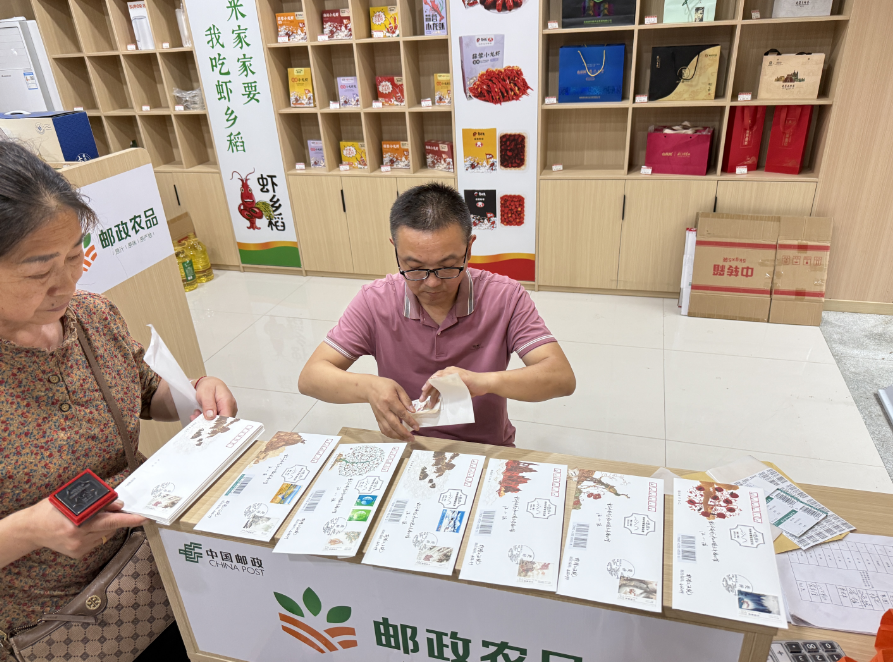 潜江新闻网讯潜江市融媒体中心记者 李淑雯 通讯员 袁雯雯 摄)近日,《楚辞》特种邮票在全省17个市州同步首发。此次发行的《楚辞》特种邮票一套6枚,每枚选取《楚辞》中的经典诗句作为主题,通过视觉化设计展
...[详细]
潜江新闻网讯潜江市融媒体中心记者 李淑雯 通讯员 袁雯雯 摄)近日,《楚辞》特种邮票在全省17个市州同步首发。此次发行的《楚辞》特种邮票一套6枚,每枚选取《楚辞》中的经典诗句作为主题,通过视觉化设计展
...[详细]

 《波斯王子:时之沙》重制版将于2026年3月前发售
《波斯王子:时之沙》重制版将于2026年3月前发售 川普對等關稅繼續!上訴法院出手,暫時恢復關稅政策|天下雜誌
川普對等關稅繼續!上訴法院出手,暫時恢復關稅政策|天下雜誌 万亿速食赛道掘金指南!俭和粉面丸子,引爆终端销量!
万亿速食赛道掘金指南!俭和粉面丸子,引爆终端销量! 客厅卧室隐形门装修效果图
客厅卧室隐形门装修效果图
